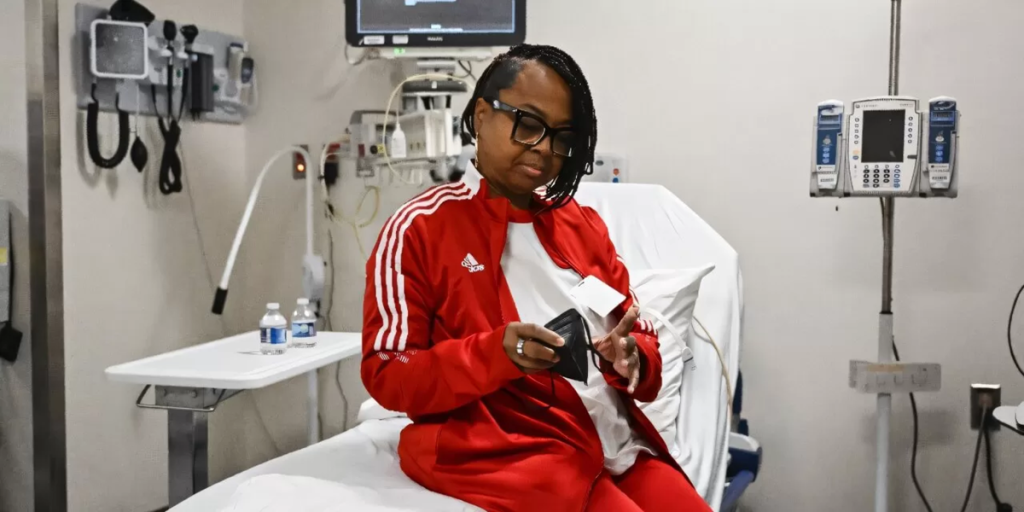Towana Looney donated a kidney to her mother in 1999, only for her remaining kidney to fail years later due to complications from pregnancy. Now, the 53-year-old from Alabama has become the latest recipient of a gene-edited pig kidney and is currently the only living person in the world with an animal organ transplant, New York’s NYU Langone Hospital announced on Tuesday.
“I’m overjoyed, I’m blessed to have received this gift, this second chance at life,” Looney said during a press conference held three weeks after the groundbreaking procedure.
Progress in Xenotransplantation
Xenotransplantation—the practice of transplanting organs from one species to another—has long been a challenging scientific frontier. Early experiments with primates yielded poor results, but advancements in gene editing and immune system management have significantly advanced the field.
Pigs have become the preferred donors due to their rapid growth, large litters, and established role in the human food supply.
Advocates hope this technique can alleviate the critical organ shortage in the United States, where more than 100,000 people are on transplant waiting lists, including over 90,000 awaiting kidneys.
A Final Hope
Looney had endured dialysis since December 2016, struggling through eight arduous years. Preeclampsia-related high blood pressure had led to chronic kidney disease, and despite her status as a priority recipient due to her prior kidney donation, her search for a compatible organ was fruitless.
Her elevated levels of harmful antibodies made rejection highly likely, and as her body lost viable blood vessels for dialysis, her condition deteriorated. Out of options, Looney applied for a clinical trial for pig kidney transplants and underwent a seven-hour surgery on 25 November.
Reflecting on her recovery, Looney’s enthusiasm was palpable. “I’m full of energy, I’ve got an appetite… and of course, I can go to the bathroom. I haven’t been going in eight years!” she joked, sharing plans to celebrate at Disney World.
Jayme Locke, one of the surgeons on the transplant team, marvelled at the results. “The kidney functioned essentially exactly like a kidney from a living donor,” she said, noting that Looney’s husband observed a healthy rosiness in her cheeks for the first time in years.
“That is the miracle of transplantation,” Locke said.

Challenges and Optimism
Looney’s case marks the third instance of a gene-edited pig kidney being transplanted into a human who was not brain-dead. The first recipient, Rick Slayman, passed away two months after his procedure at Massachusetts General Hospital. The second, Lisa Pisano, initially showed signs of recovery following her surgery at NYU Langone but lost the organ after 47 days and died in July.
Unlike her predecessors, Looney was not terminally ill before her transplant. Robert Montgomery, who led the surgery, noted that each case provides invaluable lessons for refining these techniques.
Looney’s kidney was provided by Revivicor, a biotech company that breeds genetically modified pigs in Virginia. It featured 10 genetic edits to improve compatibility with the human body—a significant advancement over earlier efforts. The addition of the pig’s thymus gland helped train her immune system to prevent rejection.
Montgomery, a pioneer in the field, expressed hope that both this approach and other methods will enter clinical trials by next year.
“This is a watershed moment for the future of transplantation,” said Kevin Longino, CEO of the National Kidney Foundation. He noted that polling among patients and families reflects strong support for expediting clinical trials, with many believing the risks of inaction outweigh the uncertainties of xenotransplantation.
Moving Forward
Looney was discharged on 6 December to a temporary apartment in New York City. While her high antibody levels remain a concern, doctors are closely monitoring her condition using wearable technology and a new drug regimen to minimise the risk of rejection.
Though periodic hospital visits may still be necessary, her medical team is optimistic that she will be able to return home in three months.


